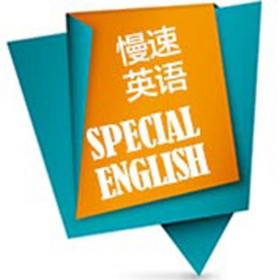This is Special English. I&`&m Ryan Price in Beijing. Here is the news.
China has released a national plan on environmental improvements for the five years spanning 2016 and 2020, detailing tasks to cleanse polluted air, water and soil.
The plan set the goals of a more environmentally friendly way of living, considerable reduction of major pollutants, effective control of environmental risks, and a sounder ecological system by 2020.
To achieve those targets, the State Council has asked Beijing, Tianjin and Hebei, as well as regions along the Yangtze River Economic Belt to draw up a bottom line, for ecological protection by the end of 2017. Meanwhile, other areas should come up with a red line before the end of 2018.
Consumption of coal, which is a major source of pollution in China, will be strictly controlled.
China&`&s environmental protection still lags behind its economic status, and decades of breakneck growth have left the country saddled with problems including smog and contaminated waterways and soil.
Northern China has frequently been choked by winter smog, showing the war on pollution is an urgent and arduous task.
This is Special English.
A mysterious banging noise on the surface of a spacecraft that baffled a Chinese astronaut turned out not to be aliens, but the result of air pressure changes.
Yang Liwei, China&`&s first astronaut, aroused public attention when he revealed in a television interview in late November that he heard an unexplained sound like "knocking an iron bucket with a wooden hammer" from outside his capsule during his maiden mission in 2003, leaving him very puzzled.
When the famed astronaut attended an event at a school in the eastern city of Ningbo in Zhejiang Province recently, the question of the mysterious noise was raised by students.
Yang replied that according to what he learned, the knocking sound was a result of decreasing air pressure that caused changes in the structure of the spacecraft as it left Earth for space.
He said air leaking out of the objects in the capsule could also cause the noise.
Yang said he thinks it was normal, and it is necessary to carefully identify the cause.
Yang&`&s explanation echoed with space scientist Liu Hong, who wrote an article for a popular Chinese science website, saying that she believes the sound comes from tiny deformations in the space capsule&`&s inner wall to changes in pressure.
You&`&re listening to Special English. I&`&m Ryan Price in Beijing.
It is time to go skiing as authorities in Beijing aim to attract as many as 5 million residents to take up winter sports by 2020 as it prepares to host the upcoming winter Olympics.
Beijing, along with the city of Zhangjiakou in Hebei Province, won the bid to co-host the 2022 Winter Olympics.
The Beijing municipal government approved a five-year plan spanning 2016 and 2020 on public fitness, pledging "vigorous efforts" to introduce winter sports to the public. The sports include alpine skiing, speed skating, figure skating and curling.
According to the plan, the government will use sports lottery revenue and other fiscal funds to build sporting venues, set up sports associations, and organize competitions and festivals.
It will particularly attract student enthusiasts with winter camps, sports schools, recreation centers and clubs. The amount of investment and details of the project are not yet disclosed.
This is Special English.
China&`&s "24 solar terms" has been added to UNESCO&`&s world intangible cultural heritage list.
The announcement was made in Addis Ababa in Ethiopia, during the 11th session of UNESCO&`&s Intergovernmental Committee for the Safeguarding of Intangible Cultural Heritages.
China&`&s "24 solar terms" is a knowledge system and social practice formed through observations of the sun&`&s annual motion, as well as cognition of the year&`&s changes in season and climate.
The terms include Start of Spring, Awakening of Insects, Start of Summer, as well as Winter Solstice, Minor Cold and Major Cold.
The collective terms are among the 37 requests for inscription on the Representative List of Intangible Cultural Heritage of Humanity.
The Intergovernmental Committee for the Safeguarding of Intangible Cultural Heritage is in its 10 years of service. It has inscribed 336 items onto the Representative List of the Intangible Cultural Heritage of Humanity.
You&`&re listening to Special English. I&`&m Ryan Price in Beijing.
The island of Utopia, created 500 years ago, and the futuristic outer space, which seem far away from each other, came together at a conference in Beijing recently.
The International Conference of Utopian and Science Fiction Studies has been held to celebrate the 500th anniversary of the publication of "Utopia".
In 1516, English philosopher and writer Thomas More published his famous book "Utopia", depicting an almost perfect fictional society, and the term has been widely used and discussed since then.
Among various anniversary activities around the world at this time of this year, the conference in Beijing commemorates the well-known novel in a special way by discussing it together with sci-fi works, with the participation of experts and scholars from China, the United States and Japan.
While Utopia is always regarded as a political and philosophical concept, and science fiction normally focuses on technology, Kim Stanley Robinson, an American sci-fi author famous for his "Mars trilogy", said at the conference that the two are connected naturally.
According to Robinson, Utopia was initially set on an isolated island, and such a background could not be used anymore after the world was completely explored, so the background had to be switched to the future.
Guo Changbao, dean of the School of Chinese Language and Literature of Beijing Normal University, said the vast space inspired by Utopia would bring meaningful perspectives for Chinese science fiction and its studies.
This is Special English.
Taiwan investigators said they had solved the island&`&s biggest-ever drug-trafficking case and seized more than 200 kilograms of cocaine.
The market value of the seized cocaine is estimated to exceed 2 billion new Taiwan dollars, roughly 62 million U.S. dollars. Investigators said they had also seized more than 50 kilograms of meth.
Investigators received tip-offs that a Taipei company had, on multiple occasions, exported "large vehicle batteries" by sea or air to Australia at unreasonably high freight costs.
On Dec. 1, they found around 51 kilograms of meth transported along with the company&`&s 11 exported vehicle batteries.
Later they seized around 218 kilograms of cocaine transported with 30 similar batteries that the company imported from Brazil.
You&`&re listening to Special English. I&`&m Ryan Price in Beijing. You can access the program by logging on to newsplusradio.cn. You can also find us on our Apple Podcast. If you have any comments or suggestions, please let us know by e-mailing us at mansuyingyu@cri.com.cn. That&`&s mansuyingyu@cri.com.cn. Now the news continues.
Michael Phelps wants to dive into the Silicon Valley&`&s investment opportunities as he tries to make the transition from Olympic swimming star and product pitchman to entrepreneur.
Phelps says he would love to get involved, whether it&`&s in a couple little startups here and there, take a little risk, have some fun and see where it goes.
For now, Phelps isn&`&t providing any details about what he is going to do, though he says he has been getting advice from venture capitalists and other experienced investors in Silicon Valley startups.
Getting into tech investing would be a new direction for Phelps, whose business experience to date consists mostly of his own line of swimwear and endorsement deals with the likes of Under Armour, Visa and Wheaties.
These and other big brands have paid him an estimated 75 million dollars during his career. That&`&s far more than the 1.6 million dollars that he received from the U.S. Olympic Committee and Speedo for winning a record 28 medals, including 23 golds, in five Olympics. He&`&s still promoting products; he is currently doing commercials for computer chipmaker Intel in a campaign that began in October.
You&`&re listening to Special English. I&`&m Ryan Price in Beijing.
A transgender student whose battle over the right to use a girls&`& bathroom has led to a landmark court ruling in Maine, and is being featured in a new HBO documentary.
"The Trans List" explores what it means to be a transgender in America.
Nicole Maines is one of several individuals featured in the documentary.
Maines says her entire family got behind her after she was bullied over a bathroom while in secondary school. The state supreme court ultimately ruled that her rights were violated.
Maines now encourages young people to advocate for themselves. In her words, "slay your own dragon, you can do it". She is currently a student at the University of Maine.
This is Special English.
Buzz Aldrin said he was evacuated from the South Pole because he became short of breath and began showing signs of altitude sickness.
The 86-year-old adventurer, who was the second man to walk on the moon, released details of his dramatic medical evacuation. He was continuing to recuperate in a hospital in Christchurch in New Zealand.
Because of the thick ice, the South Pole sits at an elevation of 2,800 meters, or 9,300 feet.
Aldrin, his son and his manager had been visiting the South Pole as tourists on a trip organized by the White Desert tour company.
Aldrin said the trip began well, and that he&`&d been planning on spending time with scientists who were studying what it would be like to live on Mars because conditions in Antarctica are similar.
After the group ventured further south, Aldrin started to feel a bit short of breath so the staff decided to check his vitals. After some examination, they noticed congestion in his lungs and that his oxygen levels were low, which indicated symptoms of altitude sickness.
This is Special English.
Infrared cameras have captured incredible scenes of wild Amur leopards and Siberian tigers this year after being installed at a national nature reserve in northeast China&`&s Heilongjiang Province.
Amur leopards were spotted 17 times this year at a nature reserve, equaling the total number from 2012 to 2015.
Siberian tigers were spotted five times, including twice when they were found roaming during the daytime.
The nature reserve said more animal activities, especially in daytime, show the rare species have become more active thanks to human retreat.
Siberian tigers were rarely found in the daytime for fear of human-related noise, including logging saws and vehicle engines at the reserve, which used to be a timber base.
In 2011, the local forestry bureau banned logging and initiated a program to build a nature reserve for wild tigers. In 2014, the reserve was upgraded to the national level.
Since the creation of the reserve, prey for carnivores, including boars and deer, have increased, which helped the big cat population rebound.
At least four Siberian tigers and seven Amur leopards currently live at the reserve. The numbers change as the animals often roam back and forth across the China-Russia border.
As one of the world&`&s most endangered species, the Amur leopard was put under top national protection in 1983. There are less than 70 left in the world. They are mostly found in Russia&`&s Far East, northeast China and the northern part of the Korean Peninsula. Around 500 Siberian tigers are believed to survive in the wild, in those same areas.
This is the end of this edition of Special English. To freshen up your memory, I&`&m going to read one of the news items again at normal speed. Please listen carefully.
This is the end of today&`&s program. I&`&m Ryan Price in Beijing, and I hope you can join us every day, to learn English and learn about the world.
(全文见周日微信。)
00:0025:00

